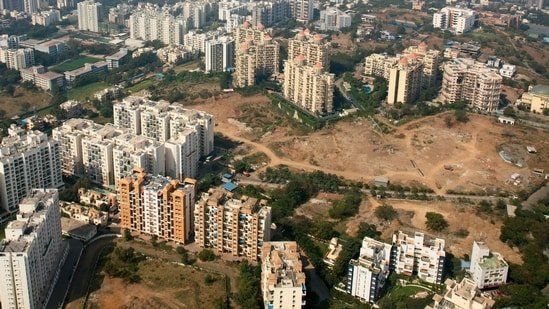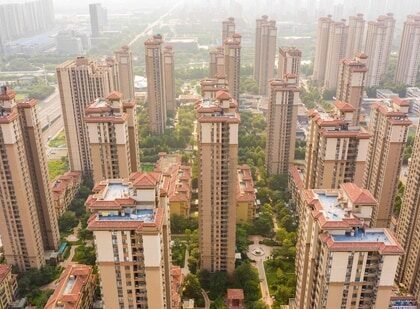The Karnataka Real Estate Regulatory Authority (KRERA) has said that the Bengaluru Development Authority (BDA) qualifies as a ‘promoter’ under the state’s RERA Act. The authority directed the BDA to register its Nadaprabhu Kempegowda Layout project, which has been under development since 2014, and to upload all relevant documents, including layout plans and approvals.

“The preliminary objection of the Respondent (BDA) that the Authority lacks jurisdiction because BDA is a statutory planning authority is rejected,” the order said.
“It is declared that BDA, insofar as it develops land and allots plots/buildings to members of the public for consideration (NPKL), is a ‘promoter’ under Section 2(zk) and the Nadaprabhu Kempegowda Layout (NPKL) is a Real Estate Project under Section 2(zn),” it said.
Earlier, BDA had sought exemption from the Real Estate (Regulation and Development) Act, 2016, arguing before Karnataka RERA that the BDA Act is a self-contained law upheld by the Supreme Court, and therefore RERA does not apply to its projects or complaints.
Homebuyers had moved KRERA against BDA
According to the complaint filed by homebuyers, the BDA has not completed the registration of NPKL as a Real Estate Project under Section 3 of RERA, despite collecting (in many cases) full consideration from Phase-I allottees.
“BDA has failed to provide basic infrastructure (water, sewerage, electricity, roads, parks, etc.), making the layout uninhabitable. BDA also advertised and invited applications for an additional 5,000 sites while registration remains pending,” the order noted.
The regulator stated that BDA collected payments exceeding permitted limits, noting that while the Authority’s norms cap pre-agreement collection at 10% of the property cost, BDA collected around 12.5% or more from several allottees. Additionally, penal interest and penalties for delayed payments were imposed “arbitrarily,” according to the order.
RERA also held that BDA did not deposit the funds collected into a project-specific escrow account, as required under the Act, nor did it provide mandatory financial and project status disclosures.
This is what BDA said
BDA, however, disputed the allegations and maintained that it is not a commercial developer but a statutory planning authority established under the BDA Act, 1976.
It argued that developing layouts and allotting sites are part of its urban planning and public welfare mandate, and therefore should not be treated the same as profit-driven real estate activity.
The authority stated that its operations are governed by separate legal frameworks, including the BDA (Allotment of Sites) Rules, 1984, and claimed that the RERA Act was never intended to regulate government-run housing schemes.
“RERA is a general law; BDA Act is a special law. By principles of statutory interpretation, special law prevails over general law. Therefore, the provisions of the BDA Act must prevail, and RERA cannot override or apply to BDA’s statutory schemes,” it said.
“Based on the above, BDA submits that this Authority lacks jurisdiction to regulate BDA or to adjudicate complaints against it. Accordingly, it is prayed that the complaints be dismissed as not maintainable,” the order said.
KRERA’s findings
The bench, led by chairperson Rakesh Singh with member Ravindranadha Reddy, dismissed BDA’s argument and ruled that any government agency that develops land and allots sites for a price falls within the definition of a promoter under the RERA Act.
The order noted that BDA’s functions in acquiring land, forming layouts, and selling sites are effectively the same as those carried out by private real estate developers. Therefore, the Authority said, BDA is equally bound by RERA’s norms of disclosure, project registration, and accountability to homebuyers, regardless of whether its objective is profit-making or not.
“Section 2(zk) (ii) of RERA defines a “promoter” as a person who develops land into a project, whether or not the person also constructs structures on any of the plots, for the purpose of selling to other persons all or some of the plots in the said project, whether with or without structures thereon,” KRERA said.
The order also underscored that any development authority or public body that forms layouts or constructs buildings and sells them to the public is treated as a “promoter” under the RERA Act. Since BDA has developed and allotted residential sites in Nadaprabhu Kempegowda Layout, it falls squarely within this definition.
“The Ministry of Housing and Urban Affairs, through Office Memorandum dated 07/05/2019, has clarified that even the Delhi Development Authority (DDA) falls within the definition of ‘Promoter’ under Section 2(zk) of the RERA Act,” KRERA said.
“Therefore, the contention that BDA does not fall under the definition of a promoter is contrary to the law itself,” the order stated.
Further, the order stated that RERA also applies to government authorities, and RERA does not exempt public authorities.
“The Act exempts only projects under Section 3(2) (area below 500 sq m, or fewer than 8 apartments). Any project solely for Government employees through no public sale is also not applicable,” it said.
KKRERA noted that BDA sells plots to the general public; therefore, RERA applies fully.
“Further, BDA’s reliance on being a ‘welfare authority’ is misleading. The fact that BDA undertakes welfare schemes or subsidised allotments does not exempt it from statutory compliance when it undertakes commercial transactions of the sale of plots. RERA is not a tax or profit-control statute. RERA is about transparency, accountability, time-bound development, and consumer protection. Even non-profit promoters are regulated if they sell real estate. The purpose (profit or welfare) is irrelevant,” KRERA said.
HT.com has sent a list of queries to BDA. The story will be updated if a response is received.





